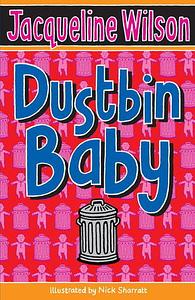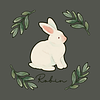Take a photo of a barcode or cover
We meet April on her 14th birthday which is April Fools day. She was found in the bins behind a pizza place with no clothes, no nappy and no note. Just abandoned.
This book would be good for 12 years old onwards however at times April does seem quite childish for her age even with what she has been through.
The first half of the book is mainly reminiscing back to the days before she was about 5. How she was found abandoned and by who, how she was adopted but things didn't end up going very well.
It was her own mini autobiography where another girl doesn't realise whats she has until she goes through the day and finds that she isn't going to get all her answers and that perhaps she is a little selfish.
Loved the ending with Frankie though, thought that was very sweet. We also see Elaine the social worker from Tracy Beaker and Tanya from Bad Girls.
Still as an adult, not a book I will be reading again, but I can see why the younger teenagers would like it.
This book would be good for 12 years old onwards however at times April does seem quite childish for her age even with what she has been through.
The first half of the book is mainly reminiscing back to the days before she was about 5. How she was found abandoned and by who, how she was adopted but things didn't end up going very well.
It was her own mini autobiography where another girl doesn't realise whats she has until she goes through the day and finds that she isn't going to get all her answers and that perhaps she is a little selfish.
Loved the ending with Frankie though, thought that was very sweet. We also see Elaine the social worker from Tracy Beaker and Tanya from Bad Girls.
Still as an adult, not a book I will be reading again, but I can see why the younger teenagers would like it.
....
I had a week before me, during which I was planning and packing for a very big trip, two thick books lined up in the queue (which would be the wooden box between my front door and the couch), and Dustbin Baby already read. I was not that impressed, and took a stroll through the giant spreadsheet of my Best Books to Read, where I found a total of twelve more Jacqueline Wilson books. I was not pumped. But I was surprised.
Who is this Jacqueline Wilson character that she makes the top 1200 (or so) books thirteen times and yet ceases to impress me? I’ll tell you. She’s a British lady. She has written over sixty-one YA books. She is now some sort of tour de force, complete with a whole online wonderland of games and information, as well as more than a few books-to-movies. She became popular after something like thirty books, when she wrote The Story of Tracy Beaker. Her popularity is thanks almost entirely to the people of England. And here is her schtick: since the 70s, she has been writing short, accessible, encouraging yet realistic books about kids and teens in really tough situations. I ended up gobbling down six more Wilson’s books (that’s all my American library had) before laying out my judgement, and the topics that sampling covered (some of her most lauded, included) were being a foster care child, having a parent with a mental disorder, dealing with the death of a friend, going through parental divorce, being a twin, and being abandoned by your parents.
I can’t help but keep thinking about the comment I received about my book from Zack Smith at the local paper: “I’m just going to say it: More coming-of-age novels need stuff like this. Estranged parents and soured relationships can only take you so far.” And yet, I think that Wilson’s books, with their accessibility and their very real and positive outlook, are also important to children. And I don’t know who benefits more: kids who can relate to this stuff, or kids who can learn compassion and understanding. (On the other hand, I think romps into light, airy, and imaginary worlds is also good food for the developing mind.)
These are the books I read (some of them in an afternoon), in this order:
Dustbin Baby, 2001
The Illustrated Mum, 1999
Double Act, 1995
The Story of Tracy Beaker, 1991
The Suitcase Kid, 1992
Vicky Angel, 2001
Girls in Tears, 2002
In the end, these books are not really my cup o’ tea, although there was some fun in breezing through them and analyzing them together. And really, I can see the merits of them. Really. Writing-wise, they were unspectacular. Wilson sticks to such straight-forward vocabulary that it can grow flat. At no time was I transported to a grassy hillside. While her characters are rounded out nicely, her plots (I think because of the featureless writing style) leave you wishing for more. With all these terrible, real-life situations and triumphant endings, I ended the last page of the last book wondering why my heart had not soared nor one lonely tear come to my eye. However, the ideas behind the books are solid, and the insight, empathy, and tact with which she writes about them are spot-on. She understands kids–and these kinds of kids (/preteens/teens)–unlike any other author (or even person) I have ever read (met).
Six random observations:
One, I absolutely love the way so many of her main characters see themselves in such negative terms (including, of course, their appearance, but also often their behavior) or even just unrealistic terms, but Wilson never takes the easy way out explaining and patronizing about how they really are beautiful or slender or kind or whatever. The character always slowly, and in a very understated way, discovers something redeemable about themselves, for themselves, and with the tender help of one compassionate person. We need not cue the sappy music.
Two, these books are for girls. Out of the seven I read, not one of them would be of too much interest to a boy. They were all about girls and written to girls. That’s all.
Three, part of how Wilson does her Wilson-thing is using illustrations (by Nick Sharrat) and other story-telling devices. Yeah, lots of YA books these days use them, too. Like Captain Underpants and Origami Yoda. Wilson uses different techniques in each book, like telling the story through a journal, or starting each chapter with a letter of the alphabet, or hanging the storyline in the structure of a walk through town. Got it?
Four, I also love that she is honest about how kids perspectives are often skewed, especially in that they are often attached where it is unsafe and repelled where it would be good. So many times, her heroine clung to an unhealthy relationship because it was familiar, justifying behaviors and running an internal dialogue of excuses, or separated themselves unwisely from people that could have offered them much better than they were already getting. We adults could take a hint, too.
Five, occasionally Wilson’s books bring up the occult or witchcraft, and not necessarily in a fantasy way. I believe she regards it as a type of play-acting, but the line is a thin one. Several of her characters imagine themselves using magic to change things around them or even hurt others. One of the characters imagines a friend who is an “ace” at the occult (turning into a vampire, etc.). Also, Christian belief is seen more in negative terms. The kid characters tend to view religion as worthless and even mock it, while the only positive religious character I read in Wilson’s books was sort of flaky about her religious affiliation to the point that you eventually forgot she was a Christian. (I only just now remembered her because the description of her stiff collar clashing with her lively pants was a stand-out.)
Six, there are movies. I have not seen any of them yet, and have no idea about their availability stateside, but I plan to look into it.
Dustbin Baby was the one which I was referring to when I said I was not that impressed. It remains my least favorite out of the lot. I think the idea was a good one–Wilson is exactly the person who could and should write about the kid who gets left in a dumpster–but the end result was a tad mundane. Also, somehow with the real-time plot and flashback to memories thing, the timing got off.
....
REVIEW FROM THE STARVING ARTIST
I had a week before me, during which I was planning and packing for a very big trip, two thick books lined up in the queue (which would be the wooden box between my front door and the couch), and Dustbin Baby already read. I was not that impressed, and took a stroll through the giant spreadsheet of my Best Books to Read, where I found a total of twelve more Jacqueline Wilson books. I was not pumped. But I was surprised.
Who is this Jacqueline Wilson character that she makes the top 1200 (or so) books thirteen times and yet ceases to impress me? I’ll tell you. She’s a British lady. She has written over sixty-one YA books. She is now some sort of tour de force, complete with a whole online wonderland of games and information, as well as more than a few books-to-movies. She became popular after something like thirty books, when she wrote The Story of Tracy Beaker. Her popularity is thanks almost entirely to the people of England. And here is her schtick: since the 70s, she has been writing short, accessible, encouraging yet realistic books about kids and teens in really tough situations. I ended up gobbling down six more Wilson’s books (that’s all my American library had) before laying out my judgement, and the topics that sampling covered (some of her most lauded, included) were being a foster care child, having a parent with a mental disorder, dealing with the death of a friend, going through parental divorce, being a twin, and being abandoned by your parents.
I can’t help but keep thinking about the comment I received about my book from Zack Smith at the local paper: “I’m just going to say it: More coming-of-age novels need stuff like this. Estranged parents and soured relationships can only take you so far.” And yet, I think that Wilson’s books, with their accessibility and their very real and positive outlook, are also important to children. And I don’t know who benefits more: kids who can relate to this stuff, or kids who can learn compassion and understanding. (On the other hand, I think romps into light, airy, and imaginary worlds is also good food for the developing mind.)
These are the books I read (some of them in an afternoon), in this order:
Dustbin Baby, 2001
The Illustrated Mum, 1999
Double Act, 1995
The Story of Tracy Beaker, 1991
The Suitcase Kid, 1992
Vicky Angel, 2001
Girls in Tears, 2002
In the end, these books are not really my cup o’ tea, although there was some fun in breezing through them and analyzing them together. And really, I can see the merits of them. Really. Writing-wise, they were unspectacular. Wilson sticks to such straight-forward vocabulary that it can grow flat. At no time was I transported to a grassy hillside. While her characters are rounded out nicely, her plots (I think because of the featureless writing style) leave you wishing for more. With all these terrible, real-life situations and triumphant endings, I ended the last page of the last book wondering why my heart had not soared nor one lonely tear come to my eye. However, the ideas behind the books are solid, and the insight, empathy, and tact with which she writes about them are spot-on. She understands kids–and these kinds of kids (/preteens/teens)–unlike any other author (or even person) I have ever read (met).
Six random observations:
One, I absolutely love the way so many of her main characters see themselves in such negative terms (including, of course, their appearance, but also often their behavior) or even just unrealistic terms, but Wilson never takes the easy way out explaining and patronizing about how they really are beautiful or slender or kind or whatever. The character always slowly, and in a very understated way, discovers something redeemable about themselves, for themselves, and with the tender help of one compassionate person. We need not cue the sappy music.
Two, these books are for girls. Out of the seven I read, not one of them would be of too much interest to a boy. They were all about girls and written to girls. That’s all.
Three, part of how Wilson does her Wilson-thing is using illustrations (by Nick Sharrat) and other story-telling devices. Yeah, lots of YA books these days use them, too. Like Captain Underpants and Origami Yoda. Wilson uses different techniques in each book, like telling the story through a journal, or starting each chapter with a letter of the alphabet, or hanging the storyline in the structure of a walk through town. Got it?
Four, I also love that she is honest about how kids perspectives are often skewed, especially in that they are often attached where it is unsafe and repelled where it would be good. So many times, her heroine clung to an unhealthy relationship because it was familiar, justifying behaviors and running an internal dialogue of excuses, or separated themselves unwisely from people that could have offered them much better than they were already getting. We adults could take a hint, too.
Five, occasionally Wilson’s books bring up the occult or witchcraft, and not necessarily in a fantasy way. I believe she regards it as a type of play-acting, but the line is a thin one. Several of her characters imagine themselves using magic to change things around them or even hurt others. One of the characters imagines a friend who is an “ace” at the occult (turning into a vampire, etc.). Also, Christian belief is seen more in negative terms. The kid characters tend to view religion as worthless and even mock it, while the only positive religious character I read in Wilson’s books was sort of flaky about her religious affiliation to the point that you eventually forgot she was a Christian. (I only just now remembered her because the description of her stiff collar clashing with her lively pants was a stand-out.)
Six, there are movies. I have not seen any of them yet, and have no idea about their availability stateside, but I plan to look into it.
Dustbin Baby was the one which I was referring to when I said I was not that impressed. It remains my least favorite out of the lot. I think the idea was a good one–Wilson is exactly the person who could and should write about the kid who gets left in a dumpster–but the end result was a tad mundane. Also, somehow with the real-time plot and flashback to memories thing, the timing got off.
....
REVIEW FROM THE STARVING ARTIST
emotional
hopeful
fast-paced
Plot or Character Driven:
A mix
Strong character development:
Complicated
Loveable characters:
Yes
Diverse cast of characters:
Yes
Flaws of characters a main focus:
Yes
dark
emotional
funny
hopeful
lighthearted
relaxing
sad
fast-paced
Plot or Character Driven:
Plot
Strong character development:
No
Loveable characters:
Complicated
Diverse cast of characters:
No
Flaws of characters a main focus:
Yes
emotional
funny
hopeful
inspiring
sad
fast-paced
Plot or Character Driven:
Character
Strong character development:
Yes
Loveable characters:
Yes
Diverse cast of characters:
No
Flaws of characters a main focus:
Complicated
reflective
medium-paced
adventurous
challenging
dark
emotional
hopeful
inspiring
mysterious
sad
tense
fast-paced
Plot or Character Driven:
A mix
Strong character development:
Yes
Loveable characters:
Yes
Diverse cast of characters:
Yes
Flaws of characters a main focus:
No
Graphic: Bullying, Child abuse, Death, Self harm, Suicide, Death of parent, Abandonment
dark
emotional
reflective
sad
slow-paced
Plot or Character Driven:
Character
Strong character development:
Yes
Loveable characters:
Complicated
Diverse cast of characters:
No
Flaws of characters a main focus:
Yes
Even as an adult, the story of how Marion came into April's life made me go "oh!" in surprise.



